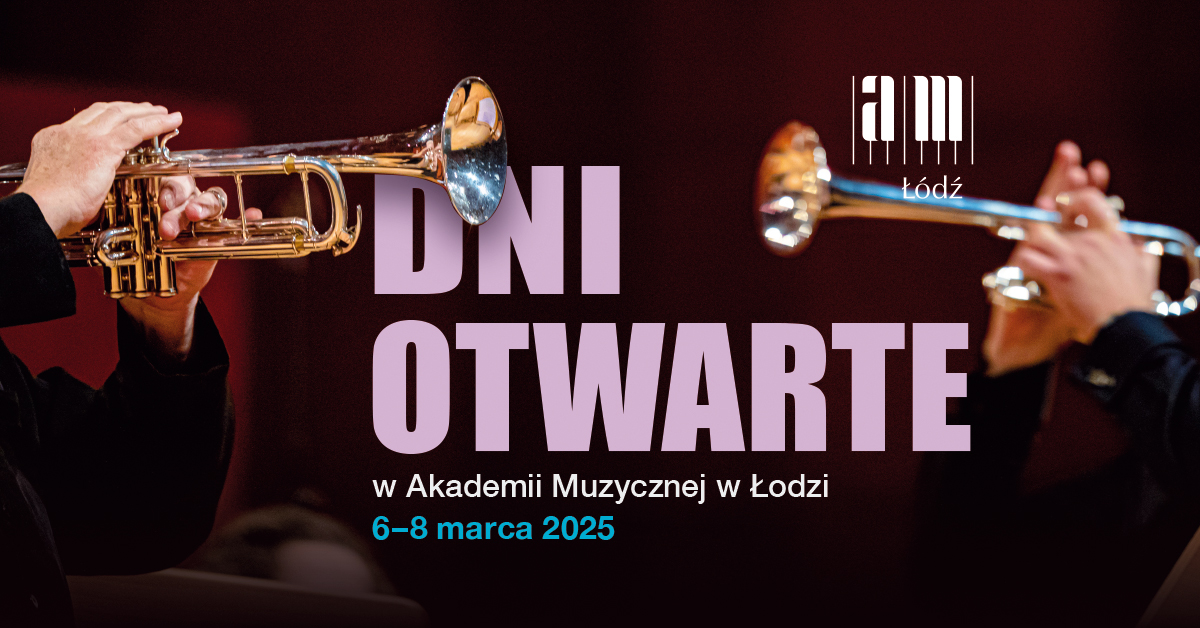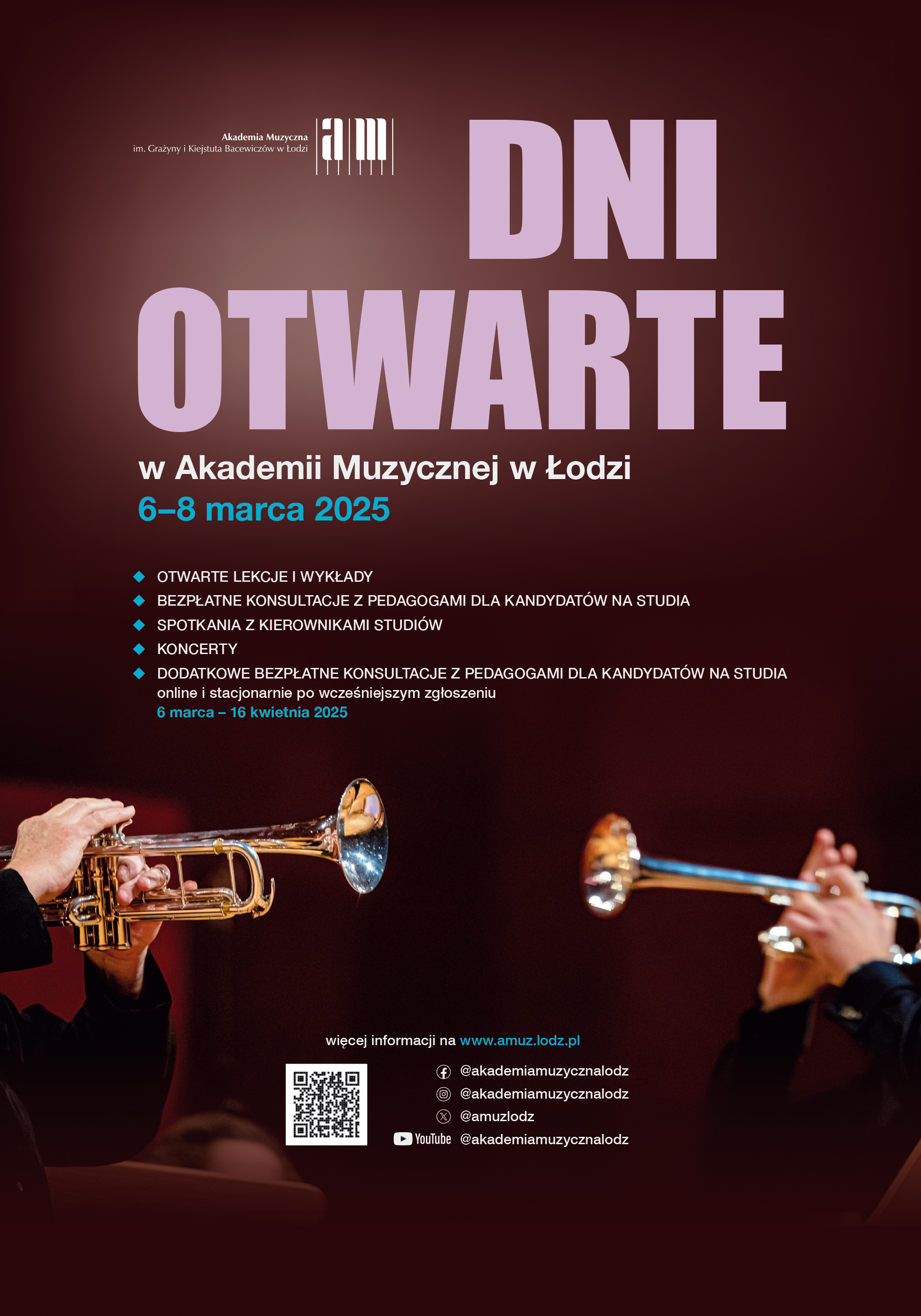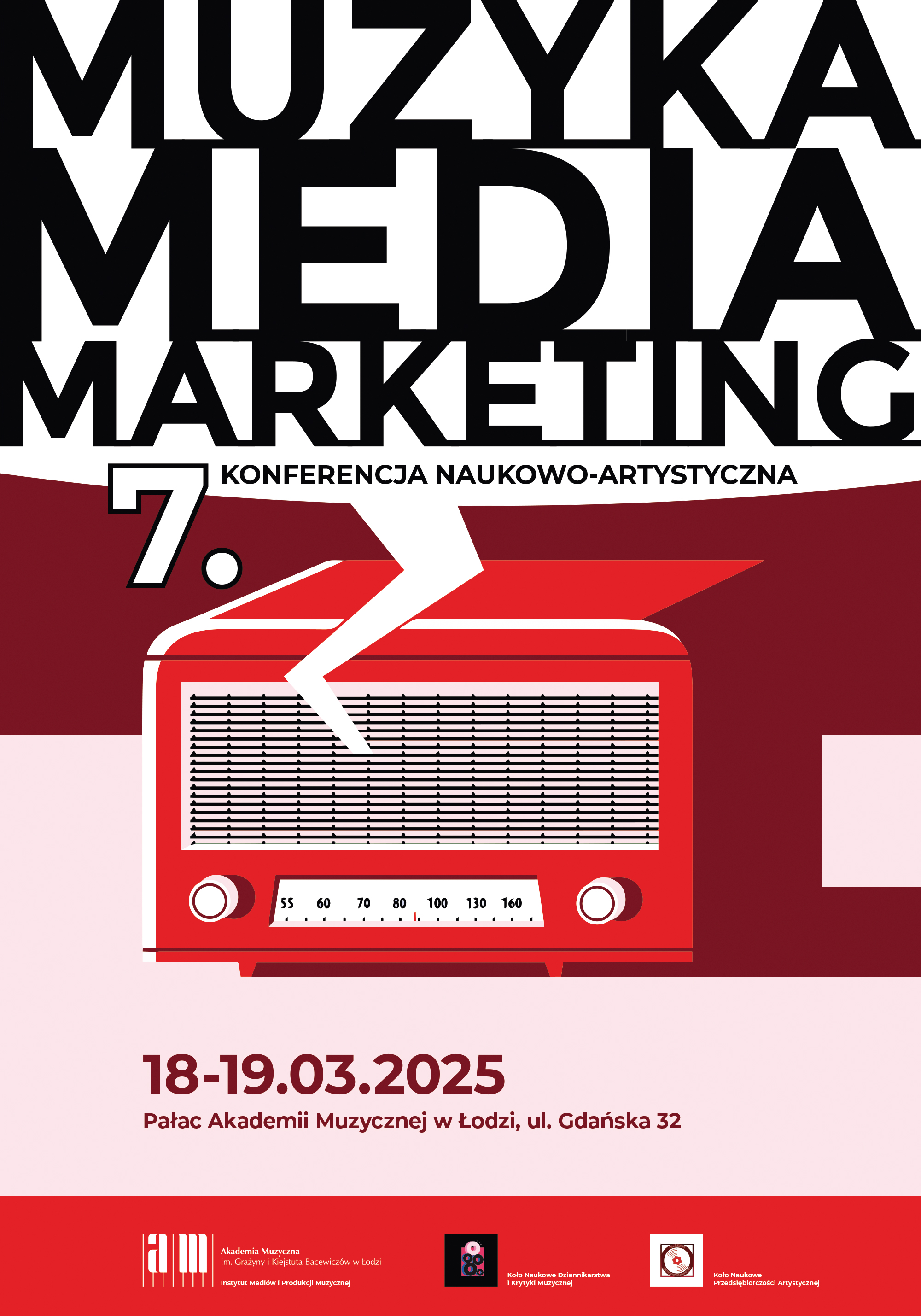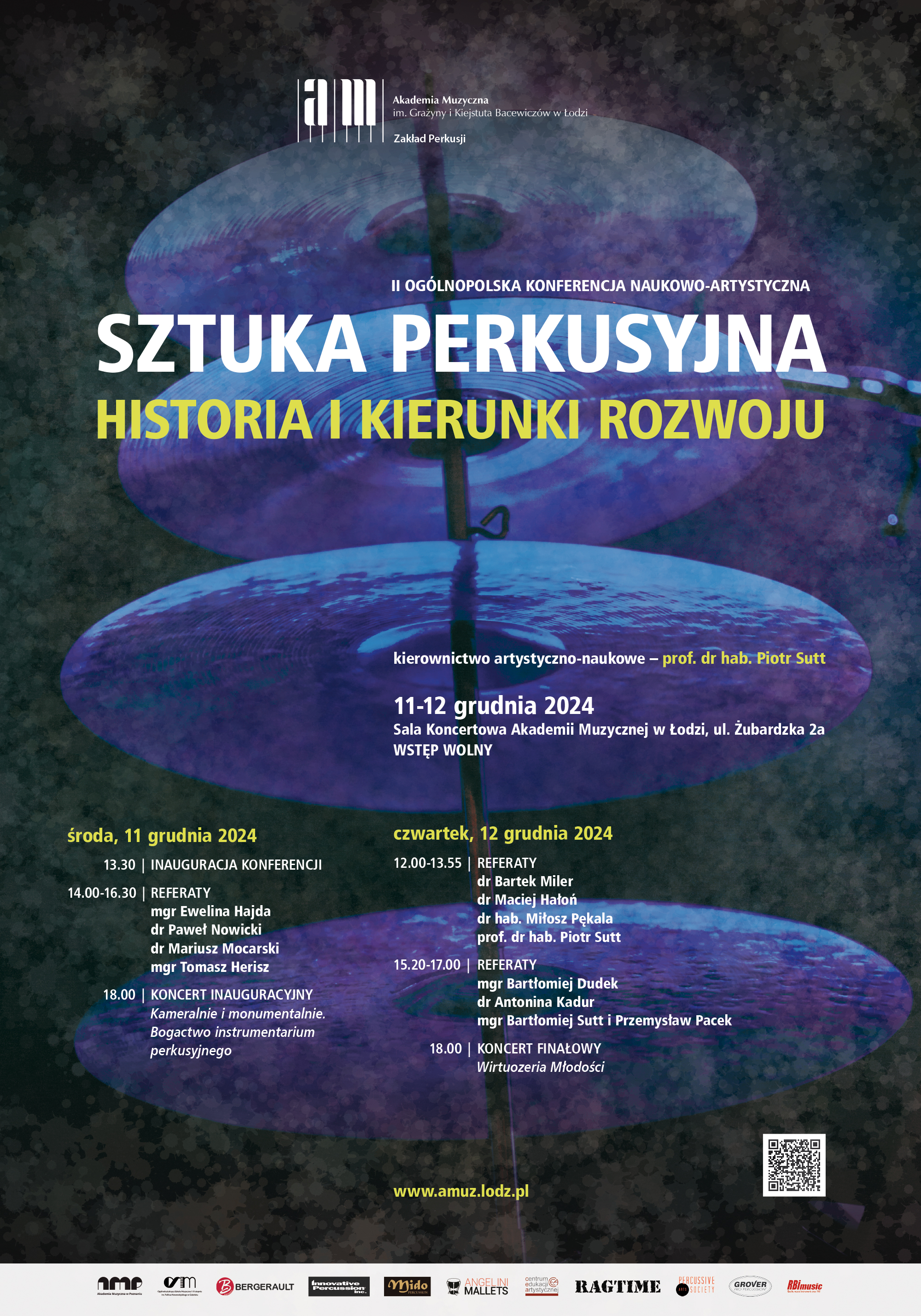IV Ogólnopolskiego Konkursu Muzyki Kameralnej im. Wiłkomirskich
dla uczniów szkół muzycznych I i II stopnia
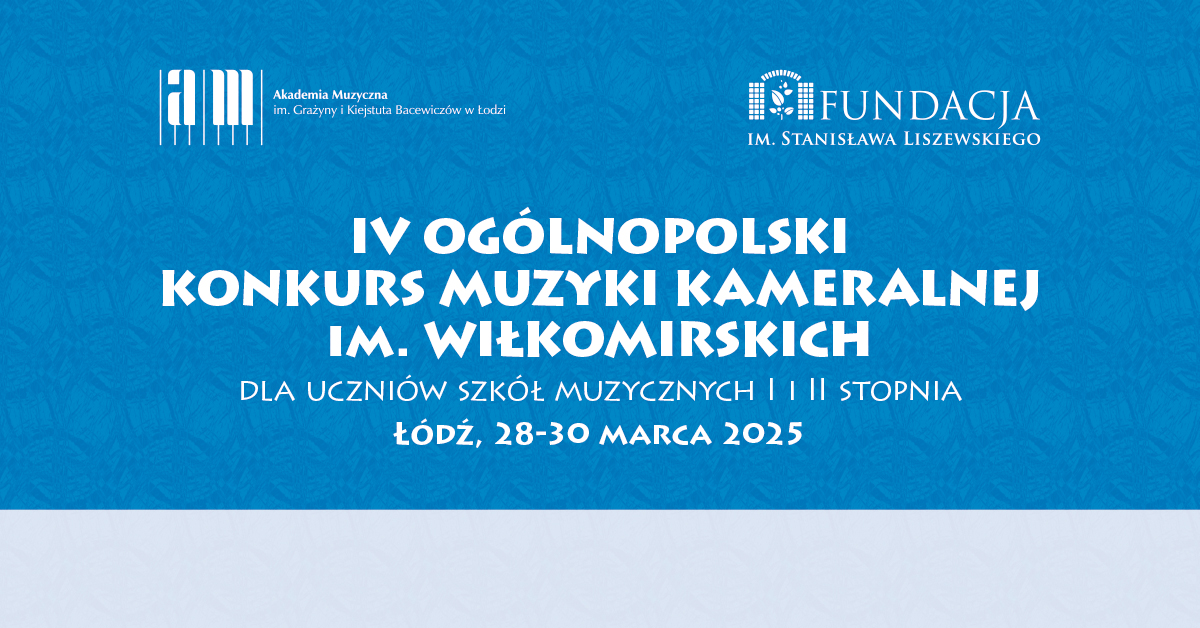
prof. dr hab. Agata Jarecka (AM Łódź) – PRZEWODNICZĄCA JURY
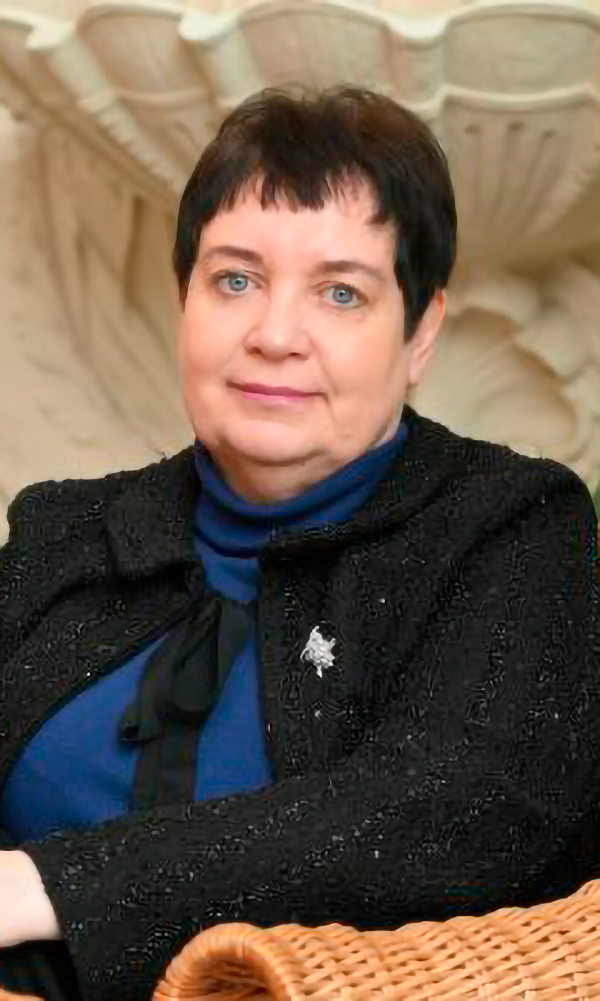
Wiolonczelistka, kameralistka, pedagog, absolwentka Akademii Muzycznej w Łodzi, w klasie wiolonczeli prof. Stanisława Firleja (1989). Swoje umiejętności doskonaliła podczas kursów i warsztatów u wybitnych wiolonczelistów, m.in. Międzynarodowych Kursów Muzycznych w Łańcucie pod kierunkiem M. Sadlo (Praga), I. Monigettiego (Moskwa), K. Michalika (Warszawa). W 1988 roku brała udział w Międzynarodowym Festiwalu Młodzieżowym w Bayreuth, w klasie kameralnej prof. U. Wiesela (Izrael). W 1988 roku otrzymała roczne stypendium Ministra Kultury i Sztuki. Jest laureatką I nagrody w Ogólnopolskim Konkursie Muzyki Kameralnej w Łodzi, w kategorii trio fortepianowe (1989), uczestniczyła w Międzynarodowym Konkursie ARD w Monachium (1996). Jako solistka, kameralistka i członek orkiestr koncertowała w Polsce i za granicą. Do chwili obecnej prowadzi ożywioną działalność solistyczną i kameralną. W swoim repertuarze posiada wiele dzieł solowych i kameralnych od baroku po muzykę współczesną. Współpracowała z łódzkimi kompozytorami: B. K. Przybylskim, J. Bauerem oraz K. Grzeszczakiem, dokonując prawykonań ich utworów. Od 2018 roku jej wielką pasją stało się komponowanie muzyki. Najbardziej znane kompozycje to: Trzy Impresje na wiolonczelę solo inspirowane poezją Wiesława Trzeciakowskiego, No stress na kwartet smyczkowy (także w wersji na 4 altówki), Polish Folk Dance na 3 flety, Hora Balkaria na klarnet i altówkę, Hymn do św. Ducha na kwartet smyczkowy, Lamento na wiolonczelę solo, Nostalgia na altówkę solo, Polish Dances na skrzypce solo, Kartka z Ukrainy na skrzypce i fortepian oraz utwory dla dzieci, m.in. Wiolonczelowe wierszowanki oraz utwory na orkiestrę kameralną dedykowane dzieciom. Zasiada w jury konkursów i przesłuchań dla uczniów szkół muzycznych I i II stopnia. Była wykładowcą na mistrzowskich kursach muzycznych, między innymi: na Międzynarodowych Mistrzowskich Kursach Muzycznych im. Z. Brzewskiego w Łańcucie, Kursie Muzycznym w Sokolnikach, Letniej Akademii Muzycznej w Żaganiu, Międzynarodowych Kursach Muzycznych w Bałoszycach oraz prowadziła klasę wiolonczeli w ramach Suwalskiej Letniej Akademii Pogranicza w Dowspudzie i Kolonie Muzyczne „Wakacje z nutkami” w Pasymiu koło Olsztyna. Zajmuje się też pracą naukową publikując artykuły związane tematycznie z wykonawstwem. Już w 1992 roku zainicjowała Konfrontacje Wiolonczelowe w Bydgoszczy. Była także pomysłodawczynią i dyrektorem Ogólnopolskiego Konkursu Wiolonczelowego im. D. Połońskiego, którego pierwsza edycja odbyła się w Akademii Muzycznej w Łodzi w 2021 roku. Od 1994 roku pracuje w Akademii Muzycznej im. G. i K. Bacewiczów w Łodzi prowadząc klasę wiolonczeli. W 2014 otrzymała tytuł profesora sztuki. Za swoją działalność została uhonorowana wieloma nagrodami i listami gratulacyjnymi, otrzymała m.in.: nagrodę I st. Rektora AM (2020), nagrodę II st. Rektora AM (1996, 2020), Nagrody Fundacji VIVA MUSICA w Bydgoszczy (2001, 2003) oraz Brązowy Krzyż Zasługi (2005) i nagrodę MKiDN (2024).
prof. dr hab. Paweł Kukliński (AM Gdańsk)
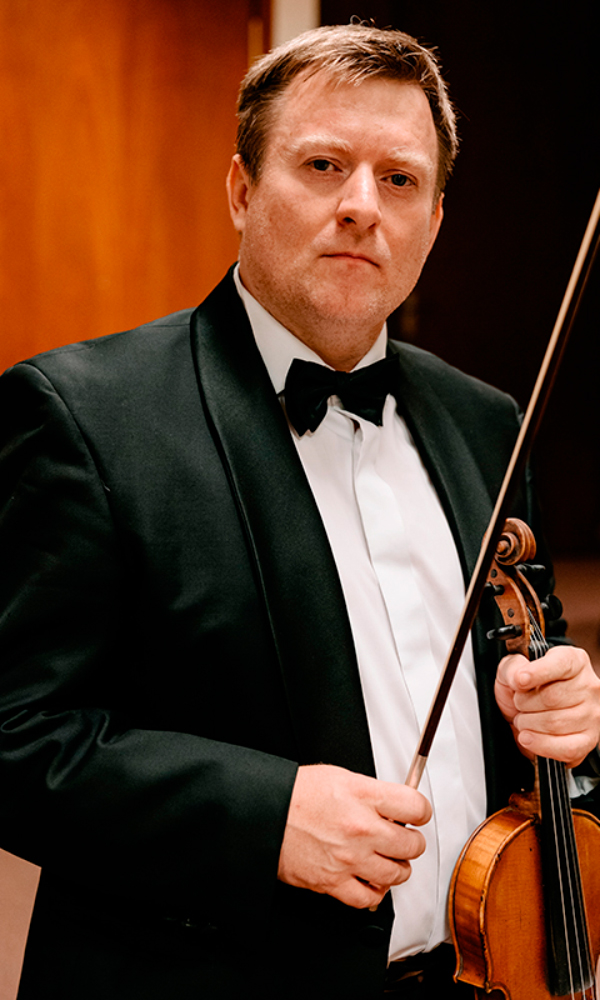
Skrzypek, kameralista, pedagog, absolwent Akademii Muzycznej w Gdańsku w klasie prof. Mirosławy Pawlak, laureat m.in. Międzynarodowego Konkursu Kameralnego im. J. Brahmsa w Gdańsku (1997). Uczestniczył w wielu kursach muzycznych, gdzie doskonalił swoje umiejętności skrzypcowe m.in. u W. Wiłkomirskiej, E. Zienkowskiego i kameralne u H. Meyera (La Salle Quartet), W. Boetchera, M. Mosia. Był stypendystą Ministra Kultury i Sztuki oraz Medyceuszy Gdańskich. Jako solista i kameralista brał udział w wielu festiwalach muzycznych: Festiwal Talentów Tarnów (1997), Festiwal Wyższych Szkół Muzycznych Hamburg (1998), Tenby Arts Festival (Walia, 1998), Festiwal Kultur w Teheranie oraz licznych festiwalach muzycznych w Płowdiv i Starej Zagorze, Helgolland, Rzymie, Paryżu, Barcelonie, Majorce, Helsinkach, Odessie czy Dubrowniku. Był koncertmistrzem i dyrektorem Elbląskiej Orkiestry Kameralnej, obecnie prowadzi klasę skrzypiec i kameralistyki w Akademii Muzycznej w Gdańsku. Jako solista koncertował z wieloma orkiestrami, wykonując utwory Bacha, Vivaldiego, Mozarta, Brucha, Mendelssohna, Wieniawskiego, Lalo, Sibeliusa, Góreckiego, Frołowa, Porta. Uczestniczył w wielu projektach artystycznych na terenie kraju, jak i za granicą, często jako solista i koncertmistrz, m.in. Tydzień Kultury Polskiej (Szwecja), widowisko Opentaniec do muzyki A. Sztaby. Występował także jako solista i kameralista na koncertach oraz festiwalach muzycznych w Belgii, Bułgarii, Chorwacji, Czechach, Danii, Finlandii, Grecji, Hiszpanii, Holandii, Iranie, Mołdawii, Niemczech, Rosji, Szwecji, Wielkiej Brytanii, we Francji, na Litwie, Łotwie i Ukrainie. Od 1999 koncertuje jako członek Tria Gdańskiego. Od 1997 związany jest z Akademią Muzyczną w Gdańsku. W 2014 uzyskał stopień doktora habilitowanego, a dekadę później, w 2024 – tytuł profesora sztuki. W macierzystej Uczelni prowadzi klasę skrzypiec i kameralistyki. Regularnie uczestniczy w pracach jury konkursów solowych i kameralnych. Stale występuje jako solista, kameralista oraz koncertmistrz w wielu projektach artystycznych. Od wielu lat pracuje także jako nauczyciel skrzypiec w ZPSM w Gdańsku-Wrzeszczu.
dr hab. Monika Wilińska-Tarcholik, prof. AM (AM Kraków)
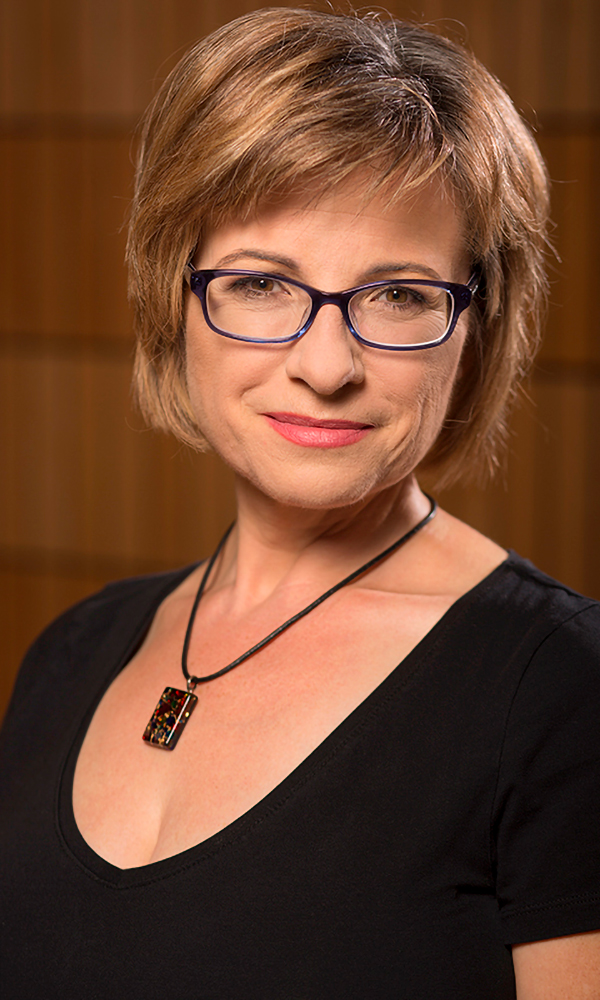
Pianistka, kameralistka, pedagog, absolwentka Akademii Muzycznej w Krakowie w klasie prof. Tadeusza Żmudzińskiego i Ewy Wolak–Moszyńskiej. Swoje umiejętności doskonaliła na kursach mistrzowskich pod kierunkiem Rudolfa Buchbindera w Zurychu i Arne Torgera w Hitzacker. Laureatka konkursu Jeunesses Musicales w Weikersheim (Niemcy) oraz nagrody specjalnej na Ogólnopolskim Konkursie Kameralnym w Zakopanem. Koncertowała jako solistka i kameralistka w Polsce, Francji, Niemczech, Rumunii i Mołdawii, uczestnicząc m.in. w festiwalach: ClarinetFest Paris, Międzynarodowe Dni Muzyki Karola Szymanowskiego w Zakopanem, Festiwal Klarnetowy w Krakowie, Przemyska Jesień Muzyczna. Brała udział w charakterze akompaniatora w szeregu konkursów i kursów muzycznych m.in. w Lusławicach, Letniej Akademii Muzycznej w Żaganiu i w Krakowie czy Wiosennych Kursach Mistrzowskich w Przemyślu, na których jest również wykładowcą. Dokonała nagrań płytowych dla DUX, KASP Records oraz PWM. Od 1996 roku związana jest z macierzystą Uczelnią gdzie w 2013 r. uzyskała stopień doktora habilitowanego sztuki. Prowadzi klasę kameralistyki w Katedrze Kameralistyki Akademii Muzycznej w Krakowie.
dr hab. Hanna Holeksa, prof. AM (AM Łódź/Fundacja im. Stanisława Liszewskiego)
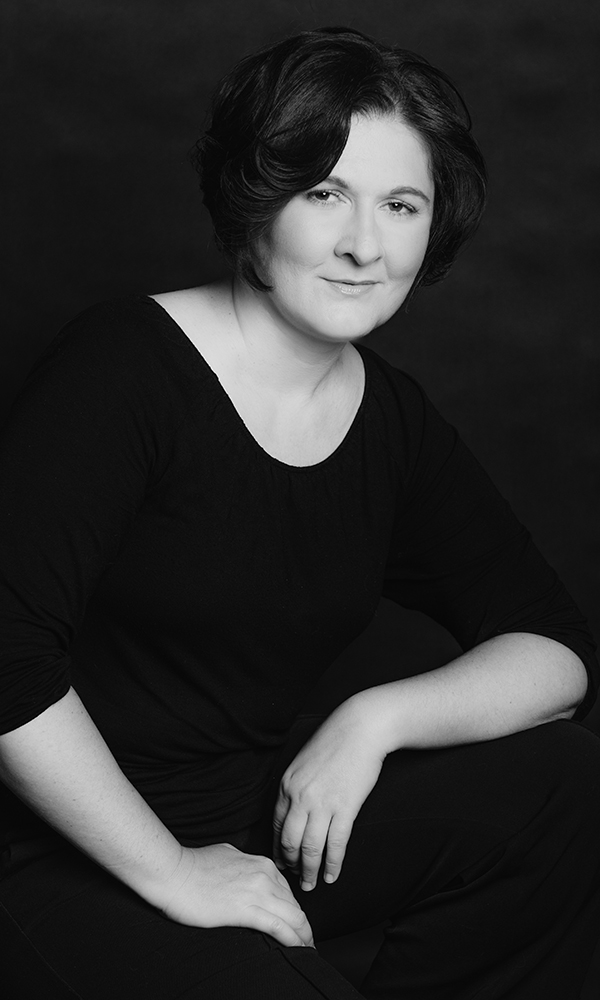 fot. Magdalena Hałas
fot. Magdalena Hałas
Pianistka, kameralistka, pedagog, absolwentka Akademii Muzycznej im. K. Szymanowskiego w Katowicach (klasa fortepianu prof. A. Jasińskiego, klasa kameralistyki prof. R. Strokosz-Michalak) oraz Hochschule der Kunst w Bernie (klasa fortepianu prof. T. Herbuta). Jest laureatką wielu nagród i wyróżnień, m.in. II nagrody na Międzynarodowym Konkursie Pianistycznym im. M. Magina w Paryżu, I nagrody na III Ogólnopolskim Konkursie Pianistycznym im. F. Liszta we Wrocławiu, nagrody Estrady Młodych Festiwalu Pianistyki Polskiej w Słupsku, czołowych lokat czterech rokrocznych edycji Ogólnopolskiego Konkursu na Stypendia Artystyczne im. F. Chopina w Warszawie, I nagrody na Ogólnopolskim Konkursie Fundacji Yamaha w Gdańsku. Podczas I edycji Międzynarodowego Konkursu Współczesnej Muzyki Kameralnej im. K. Pendereckiego w Krakowie wraz z fagocistą Dawidem Smykowskim otrzymała II nagrodę i nagrodę specjalną za najlepsze wykonanie utworu kompozytora polskiego. W 2003 r. otrzymała I nagrodę na międzynarodowym konkursie instrumentalnym Odd-Fellows Musikpreis w Bernie, a rok później wygrała RAHN Musikpreis w Zurichu. Dyskografia artystki obejmuje płyty m. in. z sonatami na skrzypce i fortepian E. Elgara, R. Straussa, K. Szymanowskiego, F. Poulenca i M. Ravela, albumy z utworami solowymi i kameralnymi P. Rateza, utworami kameralnymi A. Tansmana oraz z dziełami H. Wieniawskiego i K. Szymanowskiego. Najnowsze wydawnictwa płytowe Hanny Holeksy to 24 Intermezzi i V Sonata fortepianowa (światowa premiera fonograficzna) A. Tansmana, oraz płyta nagrana wraz z kontrabasistą Markiem Romanowskim Współczesne Sonaty – Gubaidulina, Liebermann, Proto. Jako pianistka-kameralistka Hanna Holeksa współpracuje ze skrzypkami, altowiolistami, wiolonczelistami, kontrabasistami, flecistami, klarnecistami i śpiewakami. Jest laureatką wyróżnień i nagród dla pianistów-akompaniatorów na wielu międzynarodowych i ogólnopolskich konkursach instrumentalnych. W 2016 roku była oficjalnym pianistą na XV Międzynarodowym Konkursie Skrzypcowym im. H. Wieniawskiego w Poznaniu. Koncertuje w kraju i za granicą, jej repertuar obejmuje solowe i kameralne dzieła od baroku do współczesności. Hanna Holeksa jest członkiem Zarządu Fundacji im. Stanisława Liszewskiego, oraz wiceprezesem działającego na terenie Wielkopolski Stowarzyszenia im. Jadwigi Kaliszewskiej. Od 2018 roku jest związana z Akademią Muzyczna im. Grażyny i Kiejstuta Bacewiczów w Łodzi, gdzie prowadzi klasę kameralistyki w Instytucie Muzyki Kameralnej.
dr Maria Peradzyńska (UMFC Warszawa)
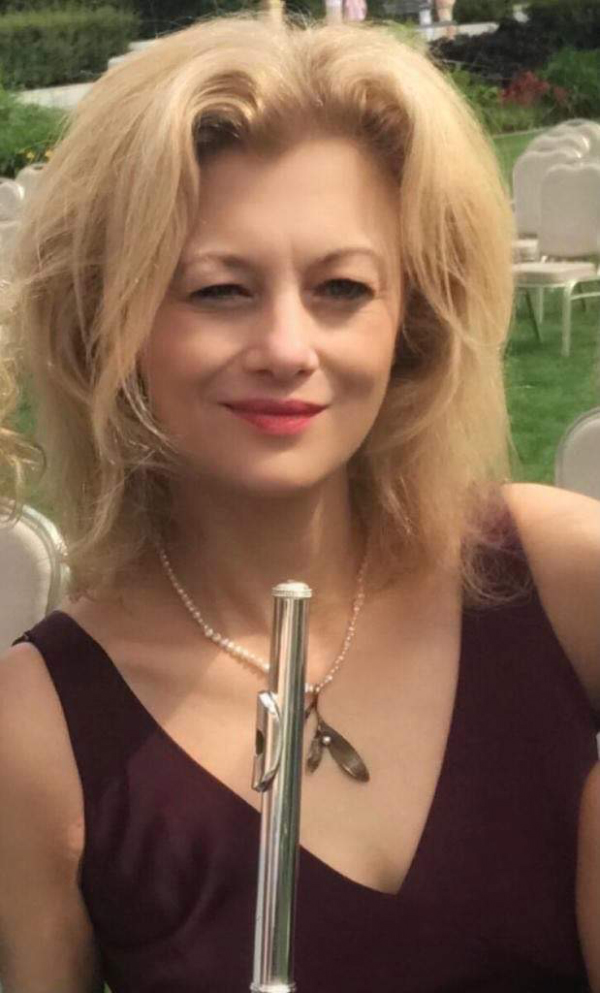
Flecistka, kameralistka, pedagog, absolwentka Akademii Muzycznej im. Fryderyka Chopina w Warszawie w klasie fletu ad. dra Grzegorza Cimaszko i prof. Elżbiety Dastych-Szwarc. Jest laureatką wielu nagród na konkursach krajowych i międzynarodowych. W 2000 roku była finalistką międzynarodowego konkursu „Tunbridge Wells International Young Artist Concert Competition” w Wielkiej Brytanii. W latach 1994 i 1995 otrzymała stypendium Uniwersytetu w Bostonie, które umożliwiło jej naukę pod kierunkiem wybitnego pedagoga oraz pierwszej flecistki Boston Symphony Orchestra – profesor Doriot Anthony Dwyer. Dwukrotnie otrzymała stypendium amerykańskiej organizacji „Apple Hill Chamber Players”, dzięki któremu doskonaliła swoje umiejętności w dziedzinie kameralistyki pod okiem wybitnych muzyków i profesorów w Stanach Zjednoczonych. W ramach kursów mistrzowskich swój warsztat kształciła pod okiem znakomitych flecistów takich jak: Sir James Galway, Jean Pierre Rampal, Julius Baker, Marina Piccinni, Bernard Goldberg. Dla firm fonograficznych „Dux” i „Polskie Nagrania” dokonała nagrań płyt z muzyką orkiestrową i kameralną. W marcu 2021 r. ukazała się jej solowa płyta z utworami zapomnianego wirtuoza fletu z początku XIX wieku, Johanna Wilhelma Gabrielskiego, która jest światową premierą dzieł kompozytora. Wielokrotnie występowała jako solistka, kameralistka oraz muzyk orkiestrowy na festiwalach w kraju i zagranicą – w Stanach Zjednoczonych, Niemczech, Francji, Szwajcarii, Austrii, Czechach oraz Ukrainie. Obecnie prowadzi klasę fletu na Uniwersytecie Muzycznym Fryderyka Chopina w Warszawie oraz w ZPSM nr 4 im. Karola Szymanowskiego w Warszawie, a także w ramach kursów mistrzowskich w Nowym Sączu, Krzyżowej, Wolsztynie, Szczecinie, Radziejowicach oraz Warszawie. Za swoją pracę oraz wkład w rozwój kultury polskiej dwukrotnie otrzymała nagrodę Dyrektora CEA, w 2015 roku nagrodę MKiDN, a w 2017 roku została odznaczona Brązowym Medalem Gloria Artis.
dr Paweł Kroczek (AM Poznań)
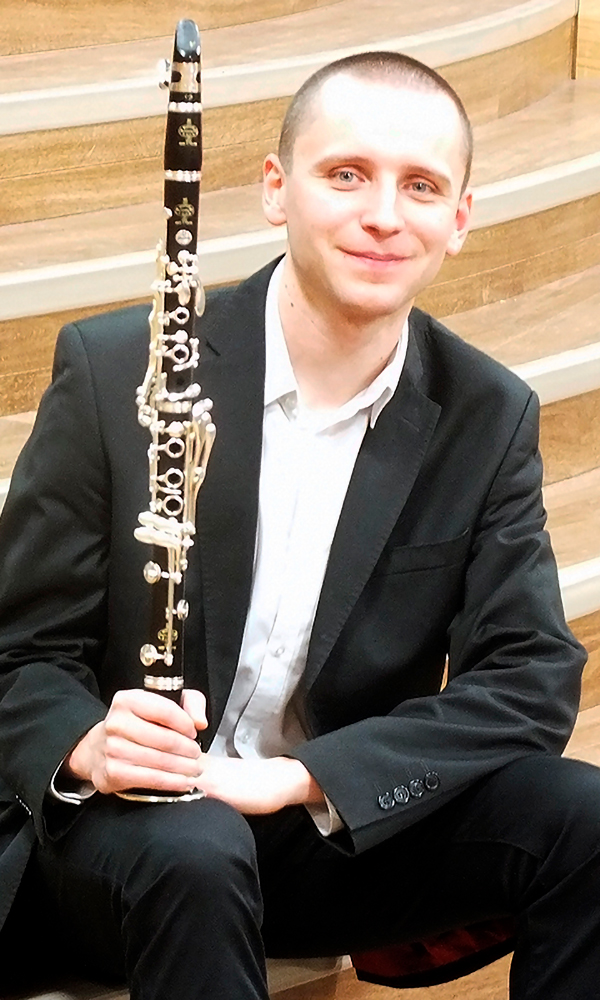
Klarnecista, kameralista, pedagog, absolwent Akademii Muzycznej im. Ignacego Jana Paderewskiego w Poznaniu, w klasie klarnetu prof. Zdzisława Nowaka. W latach 2011-2013 studiował w Lund University-Musikhogskolan I Malmo, gdzie kształcił się pod kierunkiem jednego z najwybitniejszych klarnecistów młodego pokolenia – Olliego Leppäniemiego. Swoje umiejętności doskonalił na licznych kursach mistrzowskich, pracując pod kierunkiem wybitnych pedagogów, min.: Dirk Altmann, Shirley Brill, Jorge Montilla, Florent Heau, Karel Dohnal, Gabor Varga, Milan Polak, Johannes Peitz, Arkadiusz Adamski, Kornel Wolak, Wojciech Komsta. Jest pierwszym klarnecistą orkiestry Collegium F oraz L’autunno. Współtworzy oktet dęty Kapela Farna oraz Feroce Trio. Współpracuje z wieloma orkiestrami na terenie całego kraju. Występował podczas licznych festiwali, m.in.: Animator, Malta Festiwal, Poznańska Wiosna Muzyczna, Przemyska Jesień Muzyczna, Transatlantyk, Nostalgia Festival, Festiwal im. Karola Szymanowskiego w Pekinie. Dokonał licznych prawykonań, jak również nagrań radiowych, telewizyjnych oraz CD. Jako solista występował m.in. z orkiestrami Filharmonii Kaliskiej, Opery Poznańskiej, Akademii Muzycznej w Poznaniu oraz z orkiestrą Collegium F. Jest współzałożycielem i wiceprezesem Stowarzyszenia im. Józefa Madei, ponadto członkiem zarządu Towarzystwa Muzycznego im. Karola Kurpińskiego we Włoszakowicach i współorganizatorem Akademickiego Konkursu Klarnetowego im. Karola Kurpińskiego. Współpracował z wieloma znakomitymi dyrygentami, m.in.: Gabriel Chmura, Jacek Kasprzyk, Marcin Sompoliński, Nikolai Znaider, Jakub Chrenowicz, Wojciech Rodek, Przemysław Neumann, Paweł Przytocki, Marek Pijarowski. Prowadzi również ożywioną działalność pedagogiczną, a jego uczniowie są laureatami licznych nagród i wyróżnień w krajowych oraz międzynarodowych konkursach. Jest konsultantem CEA, a także wykładowcą wielu kursów mistrzowskich dla klarnecistów. Zasiada w jury konkursów krajowych, międzynarodowych oraz przesłuchań CEA. Od 2020 roku Paweł Kroczek jest artystą manufaktury Royal Global Clarinets.
dr Michał Kluska (AM Łódź) – SEKRETARZ JURY
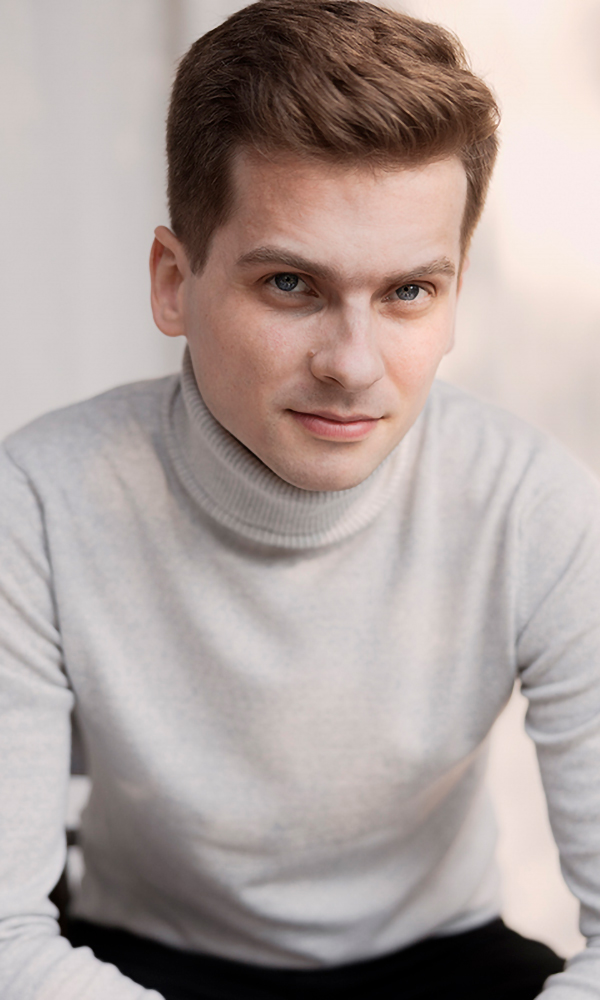
Pianista, kameralista, jest zdobywcą I nagrody VI edycji North International Music Competition w Sztokholmie w kategorii duetów kameralnych, jest również laureatem IX Międzynarodowego Konkursu Kameralnego im. K. Bacewicza w Łodzi. Ma za sobą recitale w licznych salach koncertowych Polski i Europy m.in. w Sala dei Teatini (Piacenza, Włochy), Filharmonii Koszalińskiej, w NOSPR w Katowicach, studiu koncertowym S1 Polskiego Radia w Warszawie, Filharmonii Częstochowskiej, Filharmonii Pomorskiej czy w Filharmonii Łódzkiej. Jako członek orkiestry występował w Orkiestrze Symfonicznej Filharmonii Łódzkiej, Orkiestrze Teatru Wielkiego w Łodzi czy Orkiestrze Akademii Muzycznej w Łodzi. Brał udział w Festiwalu Egerszeg (Węgry), występował na Międzynarodowym Festiwalu Kompozytorów Krakowskich oraz na Międzynarodowym Festiwalu Clarimania we Wrocławiu. W 2016 roku brał udział w rocznym Seminarium Liryki Wokalnej prowadzonym przez prof. Tomasza Herbuta (Hochschule der Künste Bern). W 2023 roku współprowadził Kursy Kameralne w Tarnowskich Górach, a także był sekretarzem jury III Ogólnopolskiego Konkursu Muzyki Kameralnej im. Wiłkomirskich. Od 2023 roku jest pianistą Międzynarodowego Kursu Interpretacji Muzycznej im. Barbary Halskiej w Nowym Sączu. W 2022 roku otrzymał tytuł doktora sztuki za badania nad kameralną twórczością Tadeusza Paciorkiewicza. Od 2017 roku jest zatrudniony jako adiunkt w Akademii Muzycznej w Łodzi gdzie pracuje ze studentami klas instrumentów smyczkowych.
dr hab. Anna Liszewska, prof. AM (AM Łódź/Fundacja im. Stanisława Liszewskiego) – DYREKTOR KONKURSU
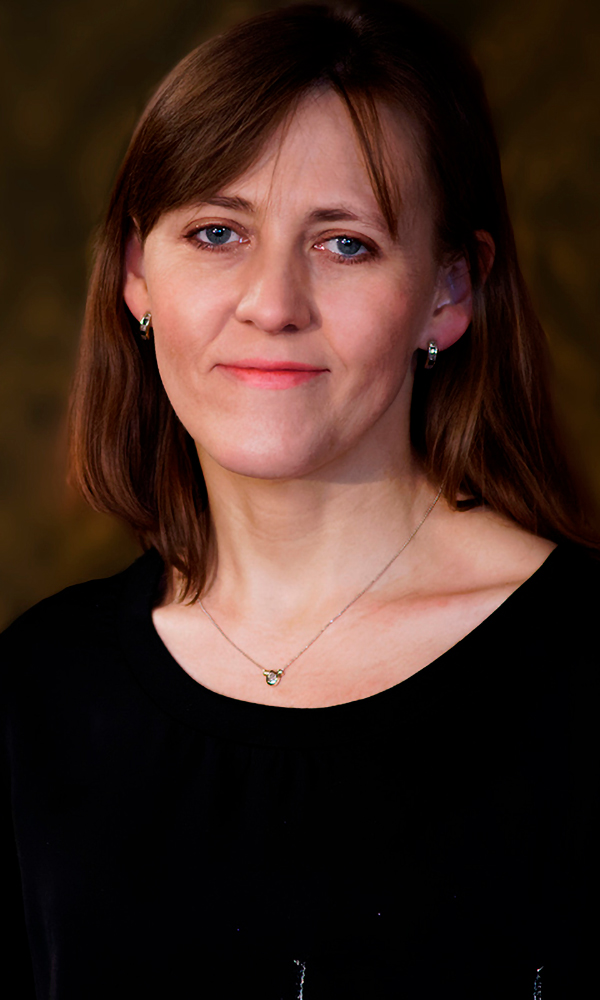
Pianistka, kameralistka, pedagog, absolwentka Akademii Muzycznej im. Fryderyka Chopina w Warszawie (1995) w klasie fortepianu prof. Lidii Kozubek. W 1998 r. w tej samej uczelni ukończyła dwuletnie, podyplomowe studia kameralne pod kierunkiem prof. Barbary Halskiej. W latach 1998-1999 współpracowała z Orkiestrą Polskiego Radia w Warszawie, z którą brała udział w licznych koncertach krajowych oraz nagraniach, a także w tournée zespołu w Niemczech. Jako solistka wielokrotnie występowała m.in. z Orkiestrą Kameralną Polish Camerata pod dyrekcją Marka Głowackiego, jako kameralistka występuje zarówno z wokalistami jak i instrumentalistami w recitalach wypełnionych różnorodnym stylistycznie repertuarem. Wielokrotnie towarzyszyła jako pianista akompaniujący śpiewakom podczas konkursów wokalnych, zarówno pieśniarskich jak i operowych a także letnich Kursów Interpretacji Muzycznej w Nowym Sączu. Od 2000 roku jest związana z łódzką Akademią Muzyczną, gdzie obecnie prowadzi klasę kameralistyki w Instytucie Muzyki Kameralnej. Doświadczenie organizacyjne zdobywała pełniąc w latach 2010-2012 funkcję Pełnomocnika rektora ds. nauki, następnie 2012-2019 – Prodziekana Wydziału Fortepianu, Organów, Klawesynu, Muzyki Dawnej i Jazzu, 2019-2020 – Dziekana Wydziału Instrumentalnego, w czasie trwającej już, drugiej kadencji 2024-2028 pełni funkcję Pełnomocnika rektora ds. parametryzacji, a także funkcję Dyrektora Szkoły Doktorskiej Akademii Muzycznej im. G. i K. Bacewiczów w Łodzi. Jest aktywnym członkiem Łódzkiego Towarzystwa Naukowego oraz Przewodniczącą Łódzkiego Oddziału SPAM, a także Prezesem Zarządu Fundacji im. Stanisława Liszewskiego. Jej zamiłowaniem jest muzyka kompozytorów słowiańskich, z którą związana jest także obecna działalność artystyczna i wydawnictwa fonograficzne. Owocem tych zainteresowań są m.in. płyty (solowa i kameralna) z twórczością F.X. Mozarta wydane w wydawnictwie DUX. Od roku 2021 współpracuje w duecie fortepianowym Bacewicz Piano Duo z pianistką Hanną Holeksą. Duet dokonał m.in rejestracji audiowizualnej prawykonania dwóch koncertów na dwa fortepiany solo Witolda Friemanna oraz zrealizował projekt Zapomniana romantyczna polska muzyka fortepianowa na 4 ręce w ramach stypendium twórczego MKiDN. Anna Liszewska od 1995 roku nieprzerwanie prowadzi klasy fortepianu w podstawowych i średnich szkołach muzycznych w Łodzi.
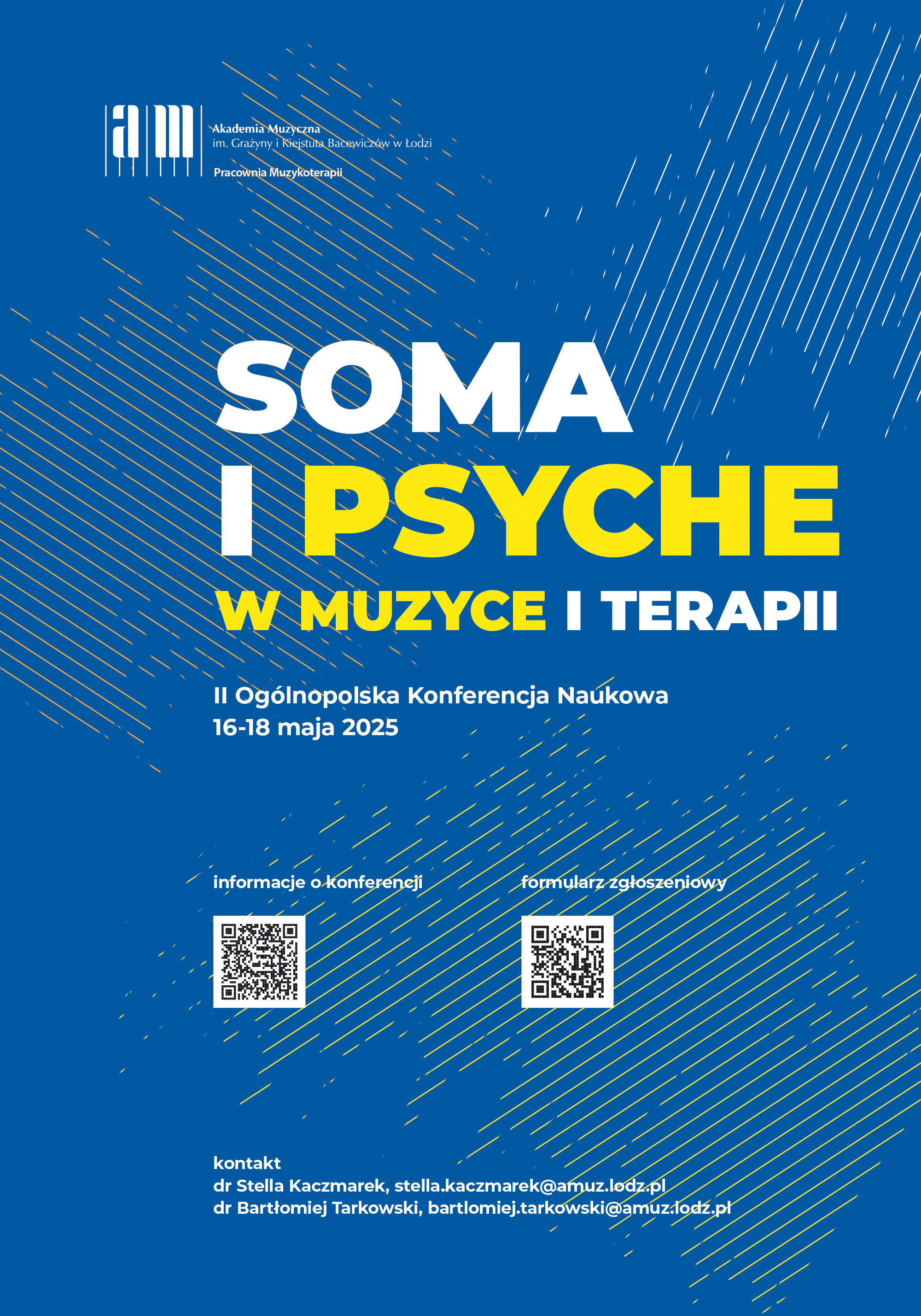



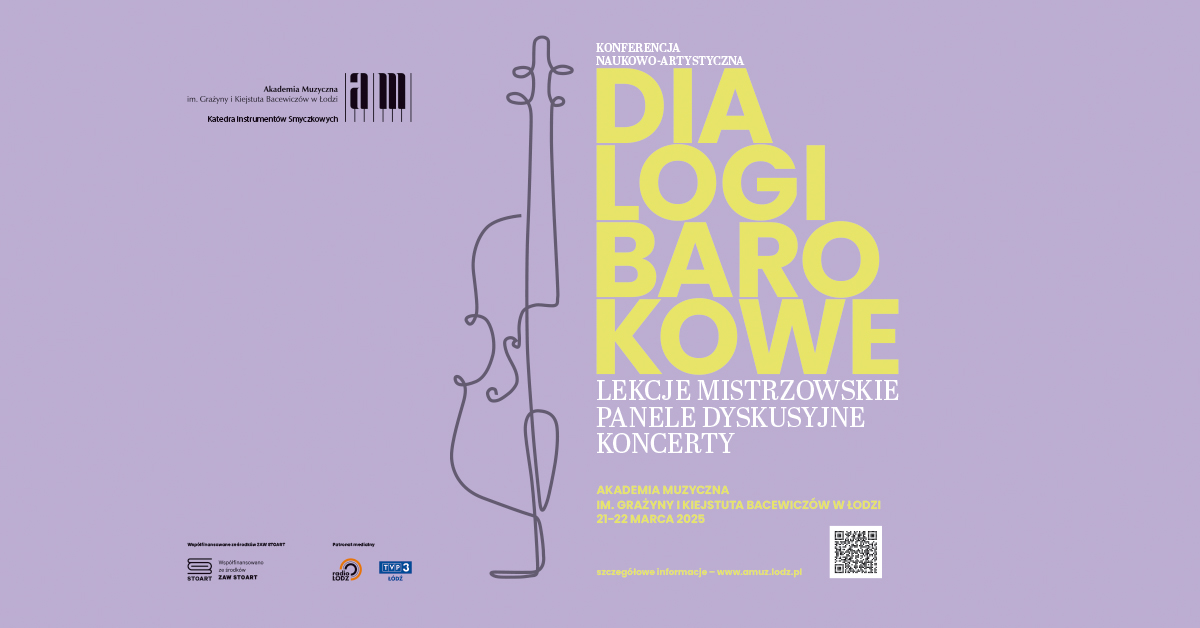

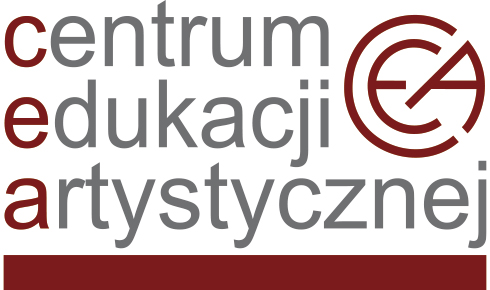
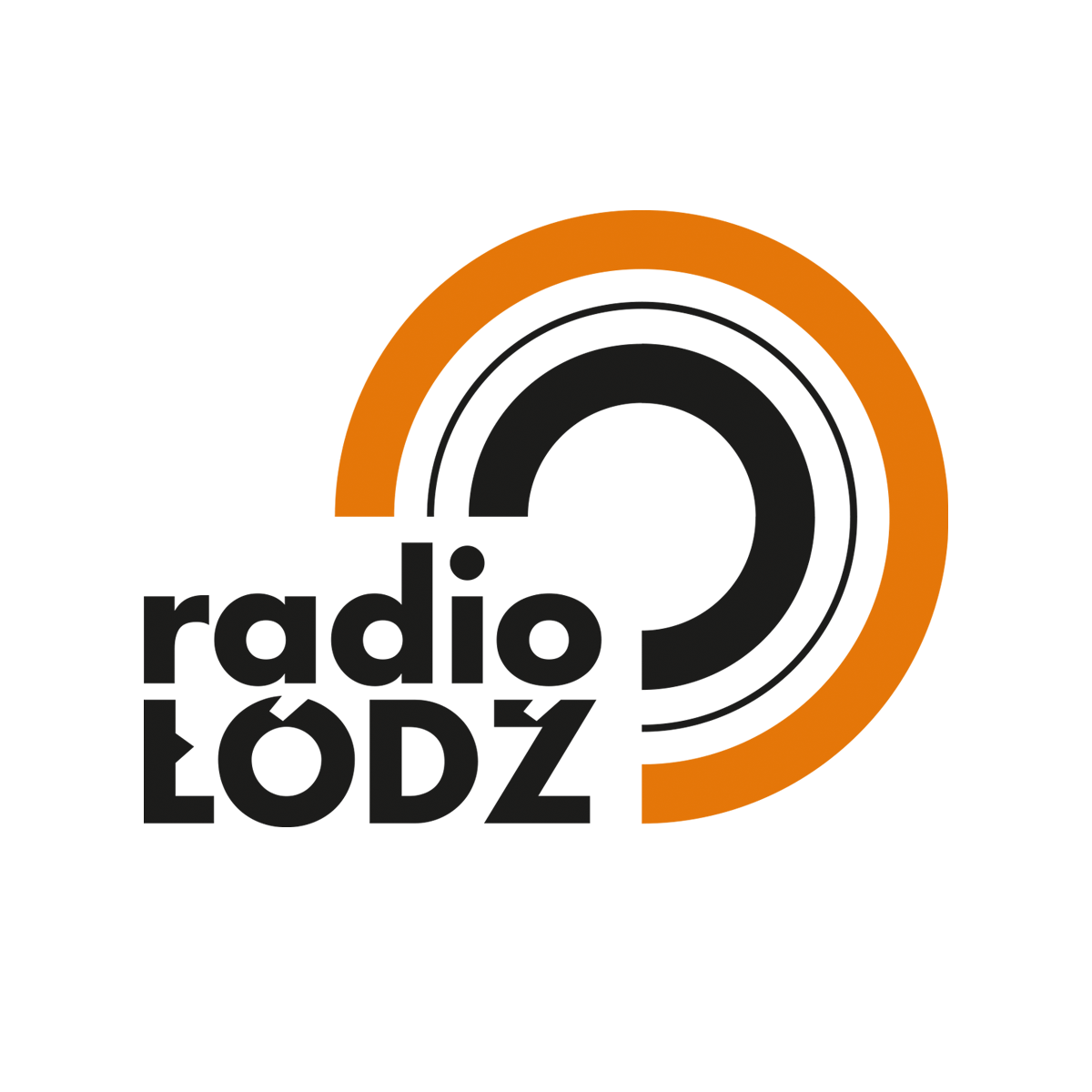
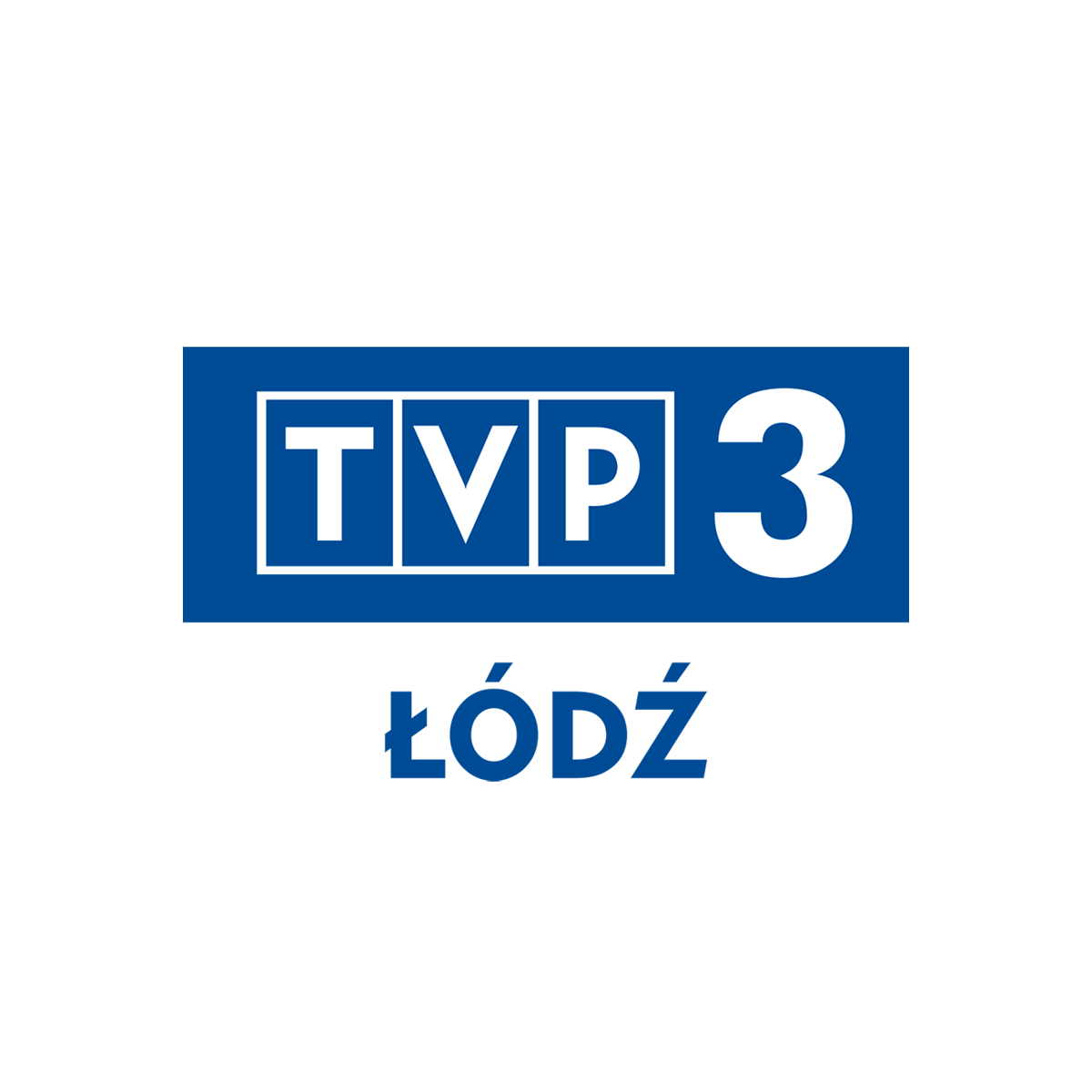
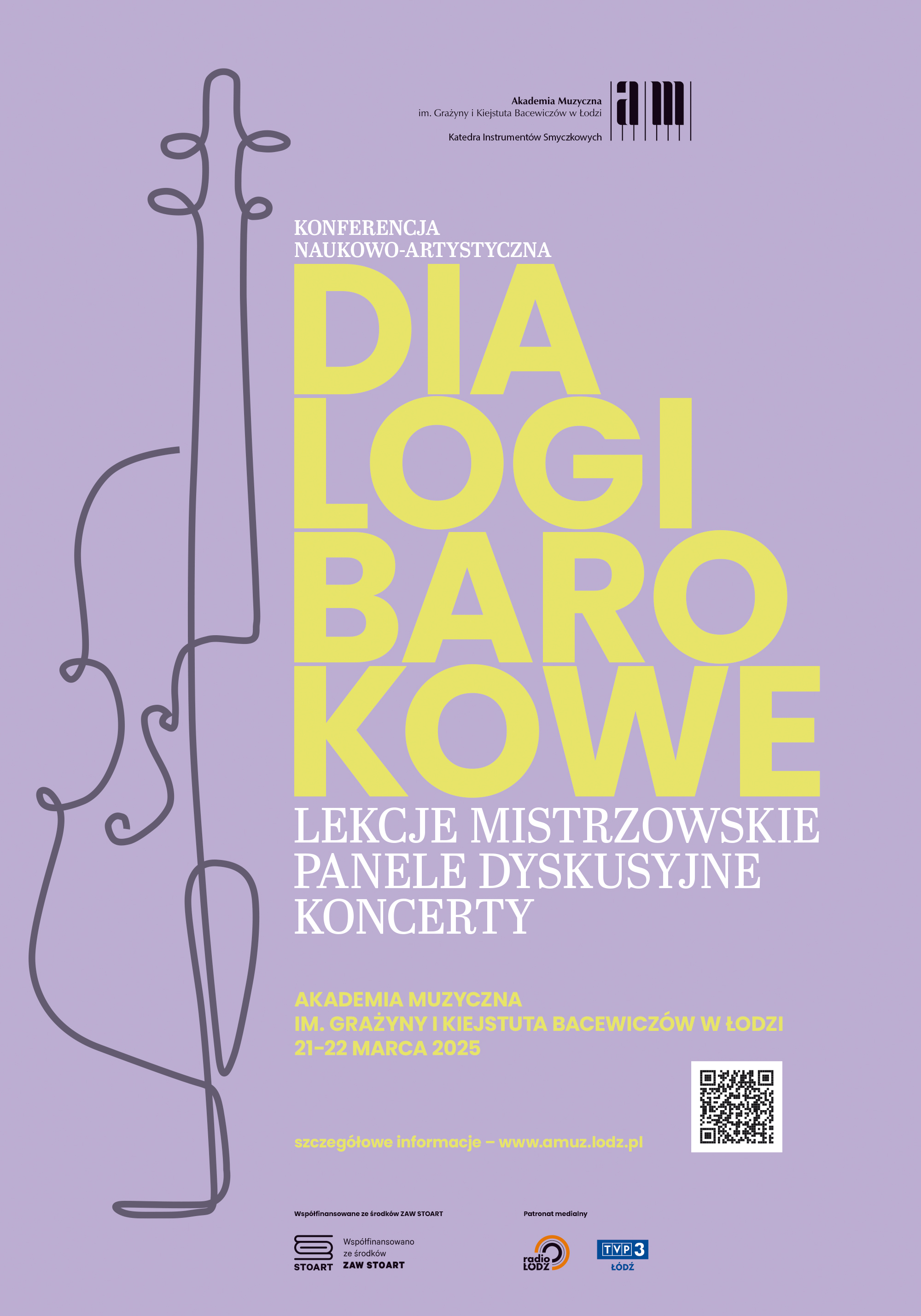
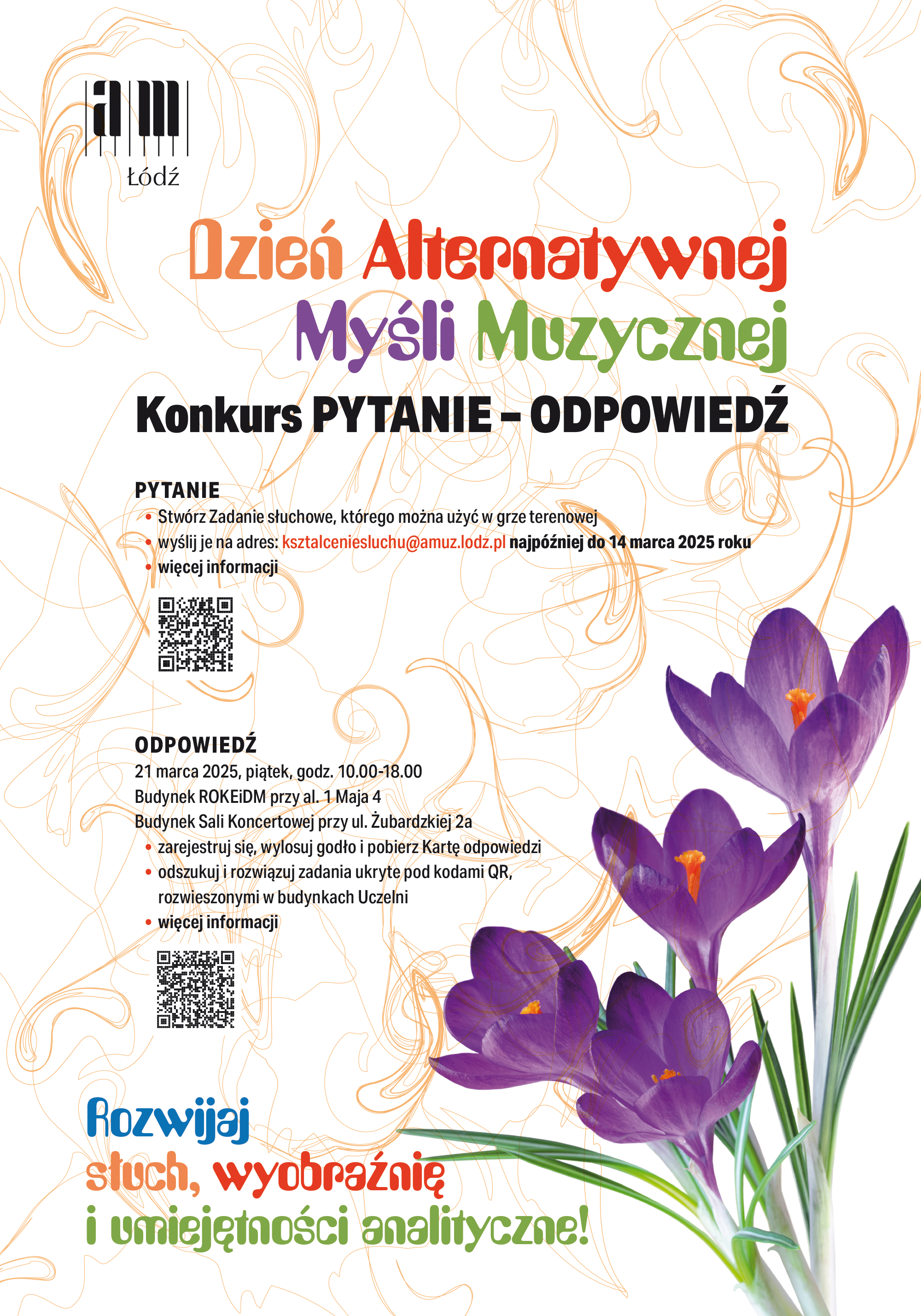
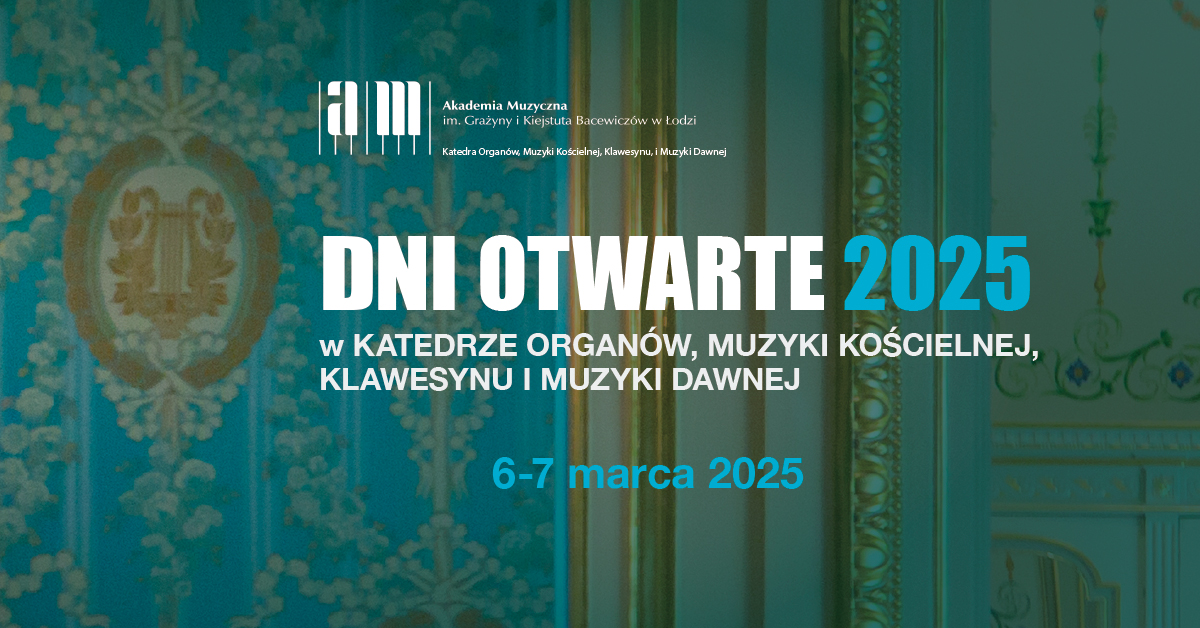
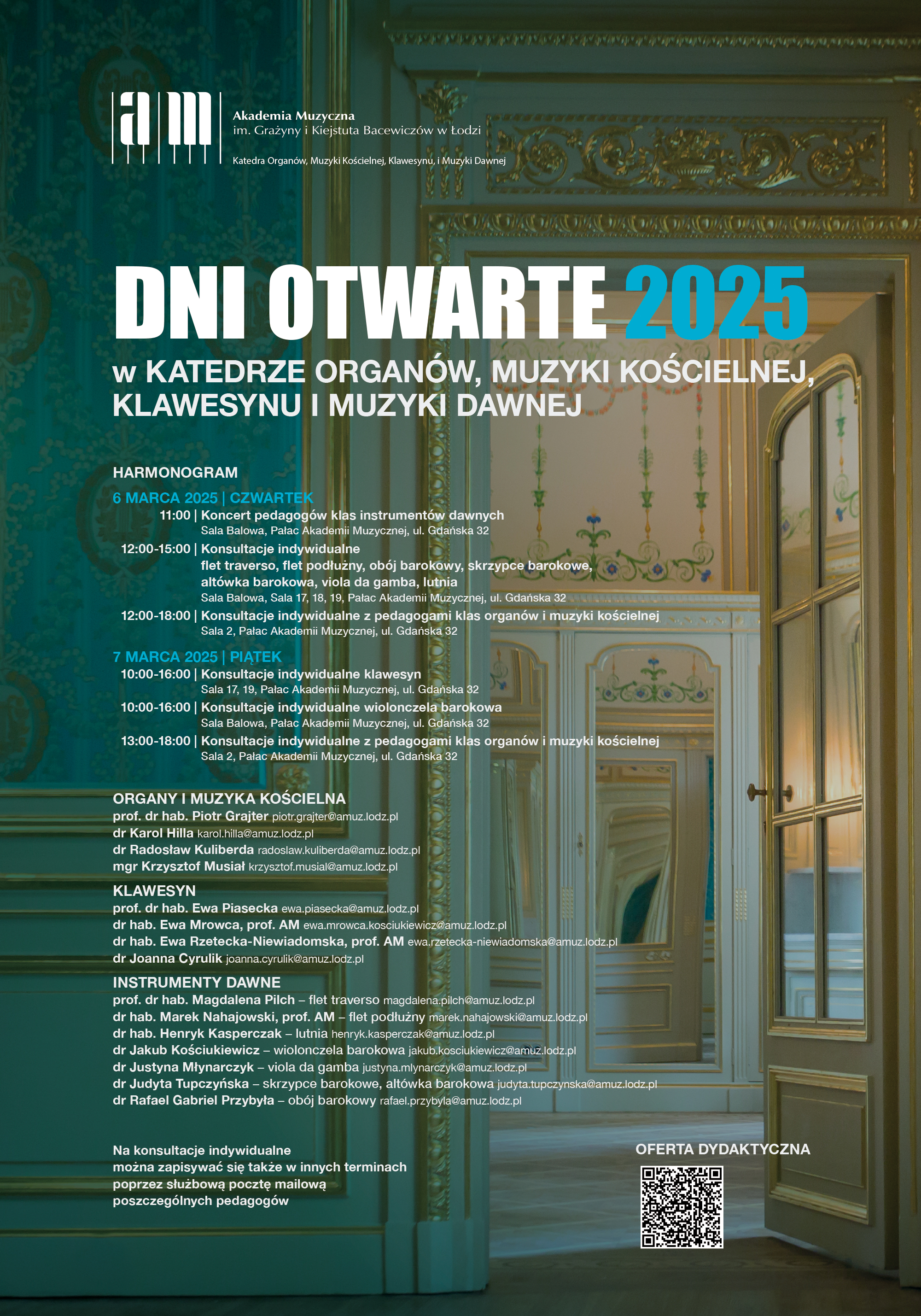


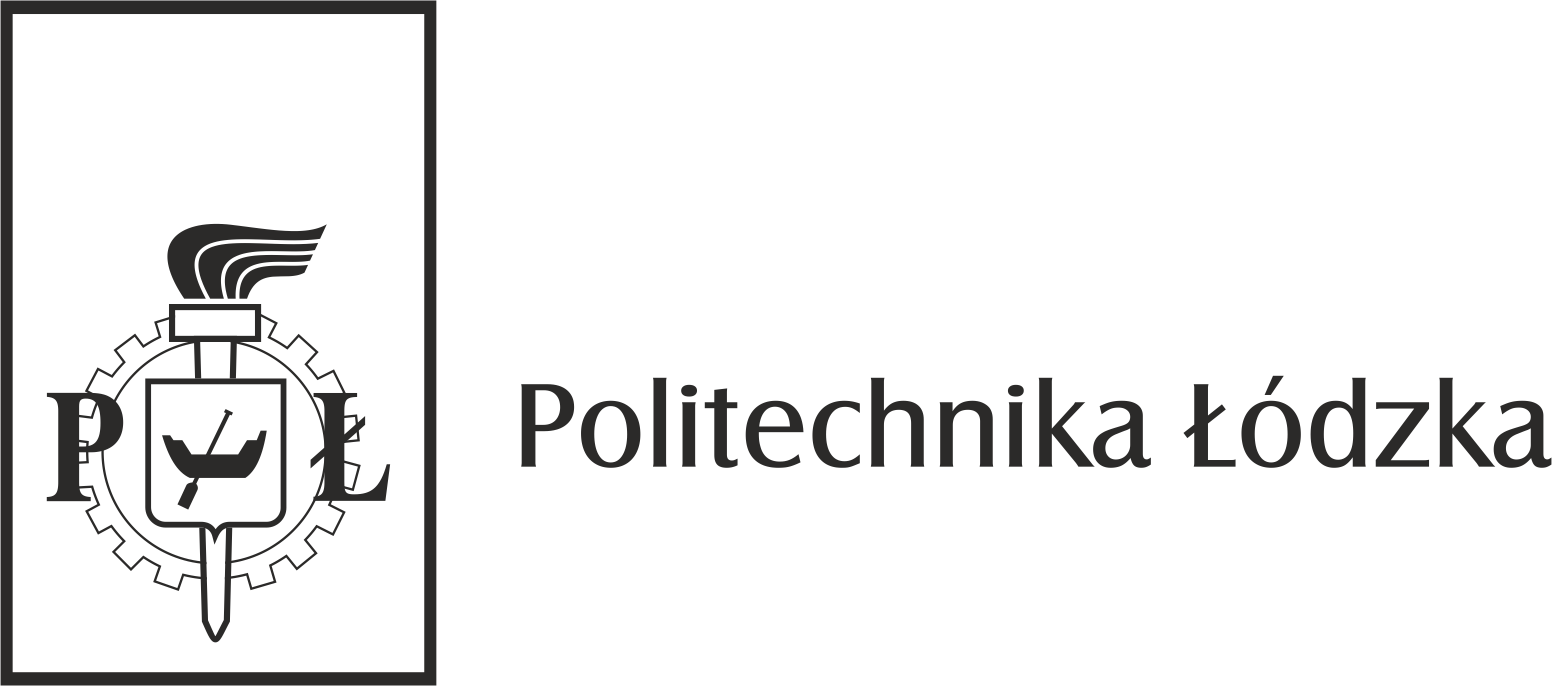
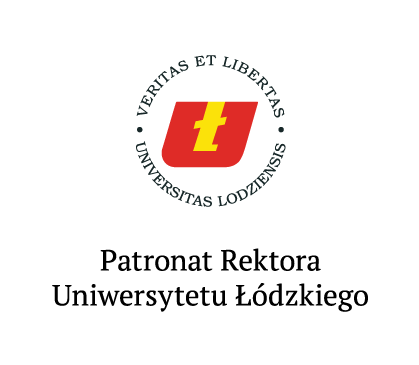

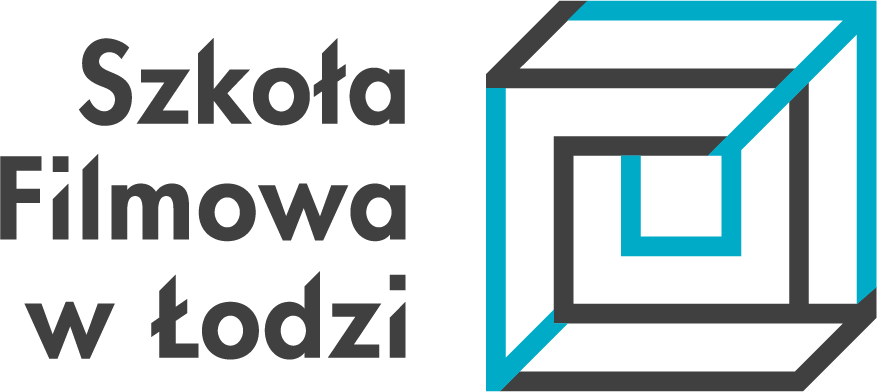


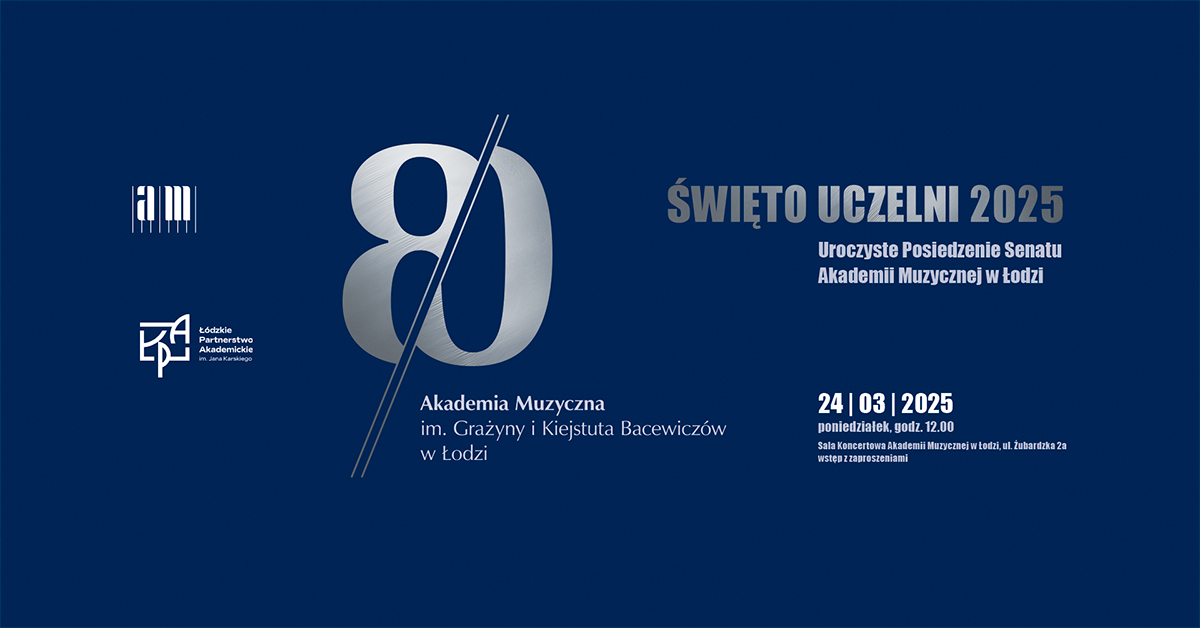 ŚWIĘTO UCZELNI 2025
ŚWIĘTO UCZELNI 2025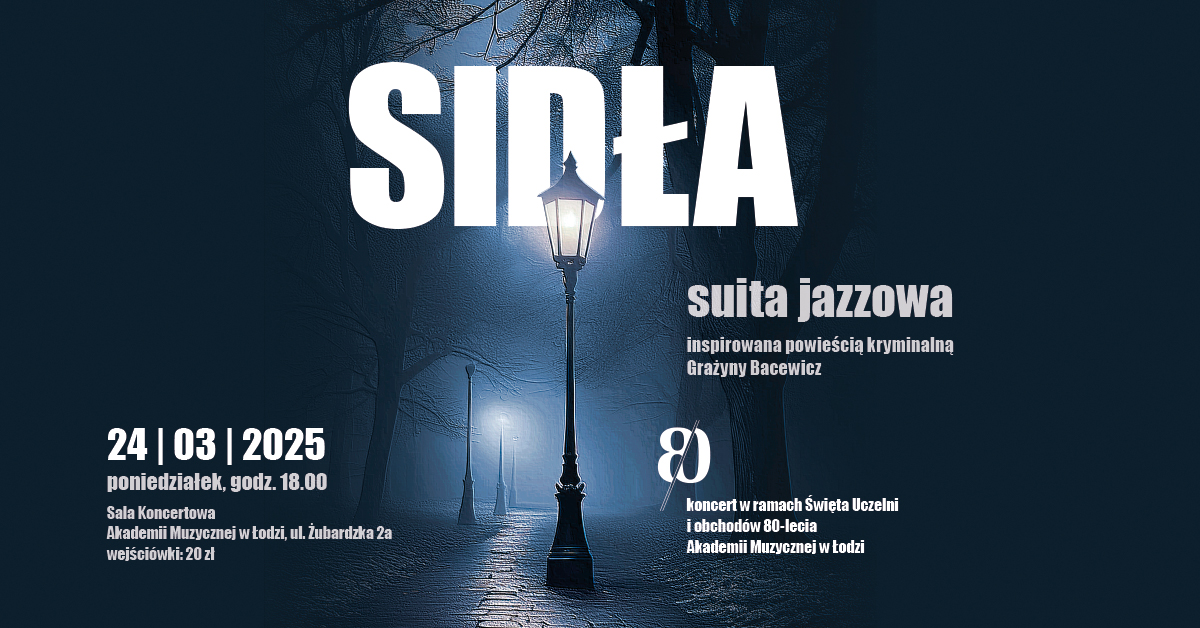 SIDŁA
SIDŁA GIOACCHINO ROSSINI
GIOACCHINO ROSSINI GIOACCHINO ROSSINI
GIOACCHINO ROSSINI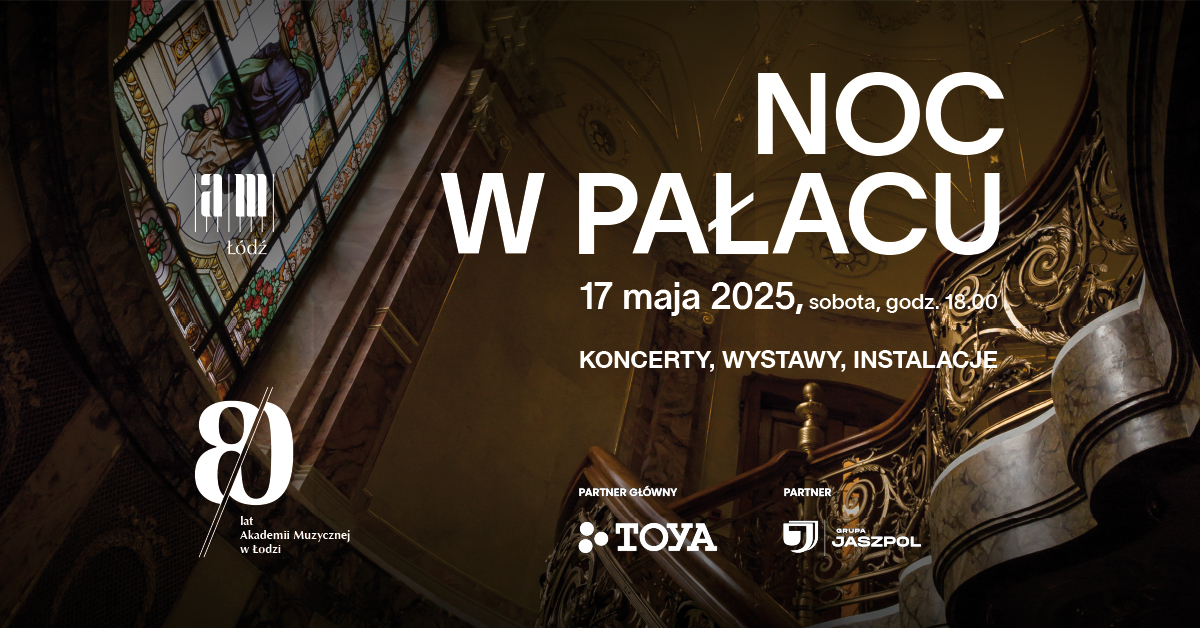 NOC W PAŁACU
NOC W PAŁACU
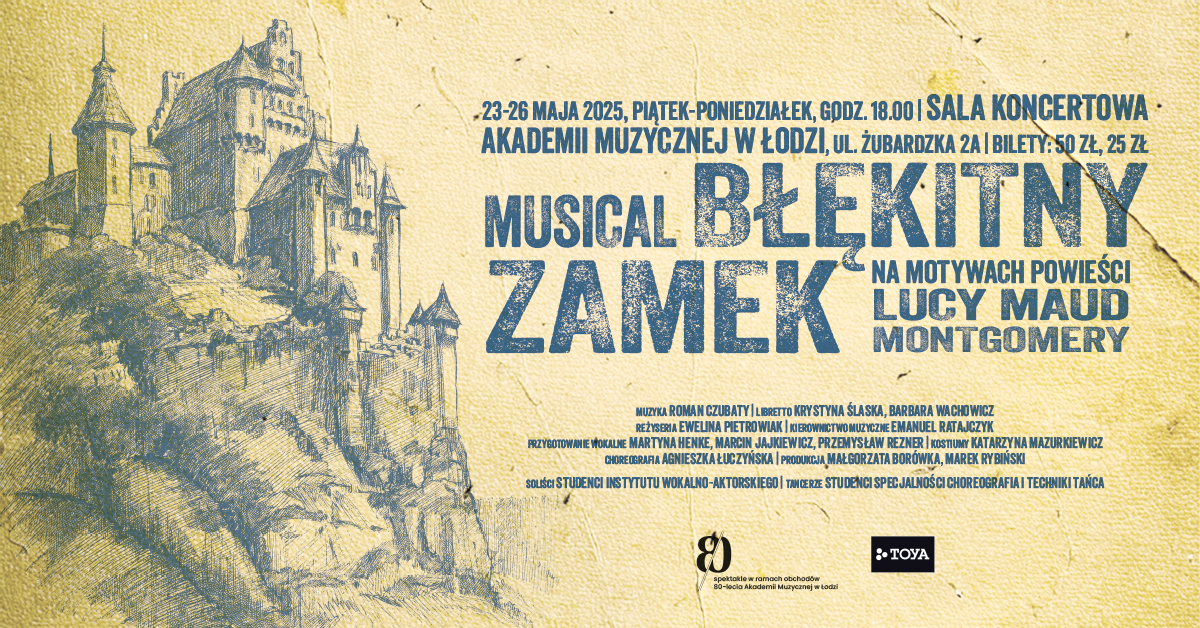 Musical BŁĘKITNY ZAMEK
Musical BŁĘKITNY ZAMEK
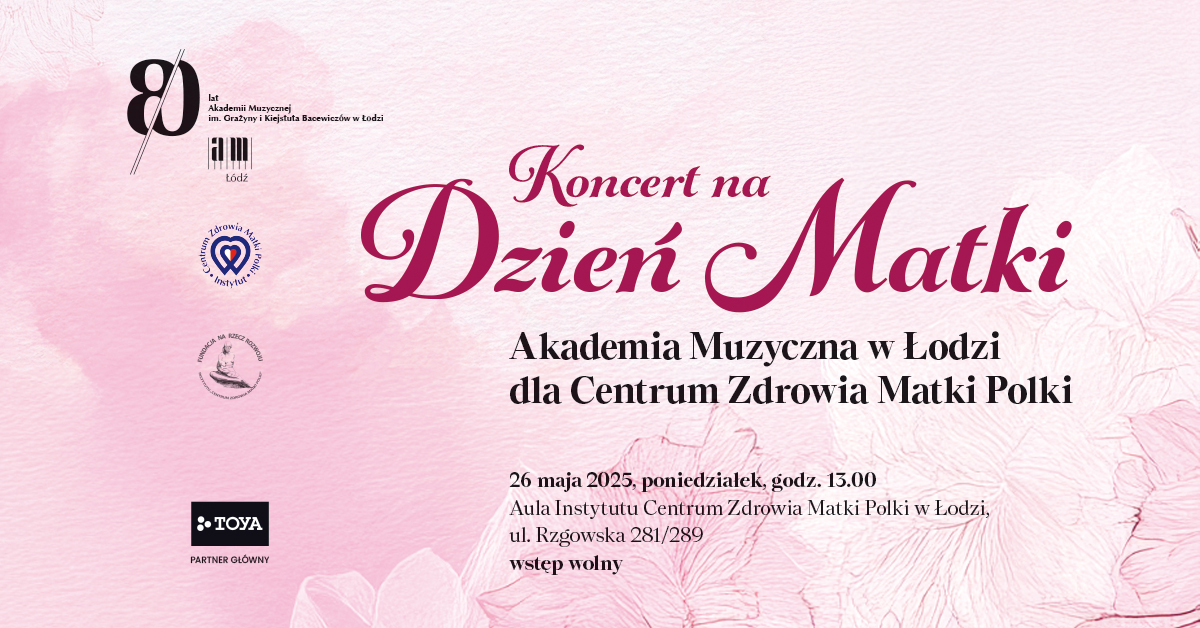 Koncert na Dzień Matki
Koncert na Dzień Matki
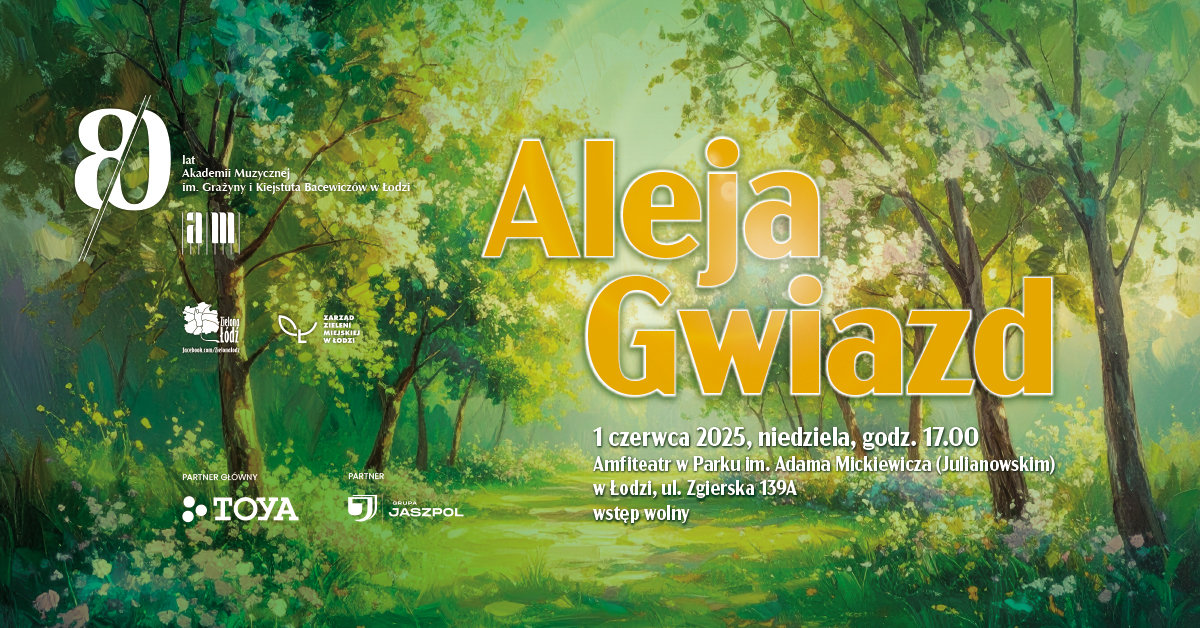 ALEJA GWIAZD
ALEJA GWIAZD
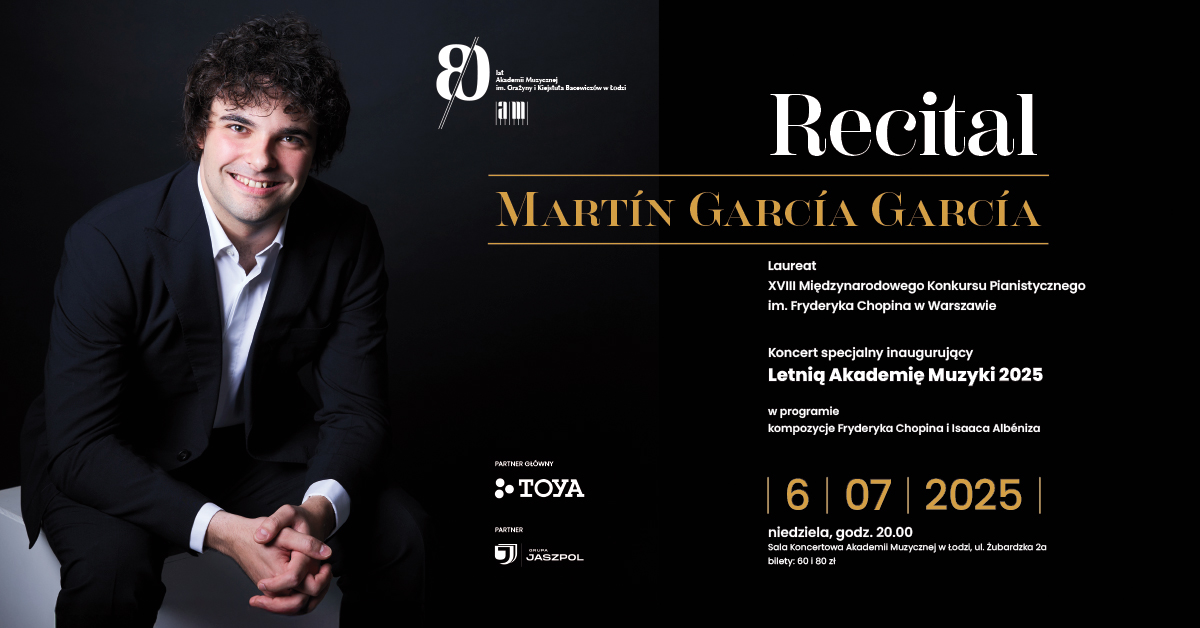 RECITAL Martín García García
RECITAL Martín García García
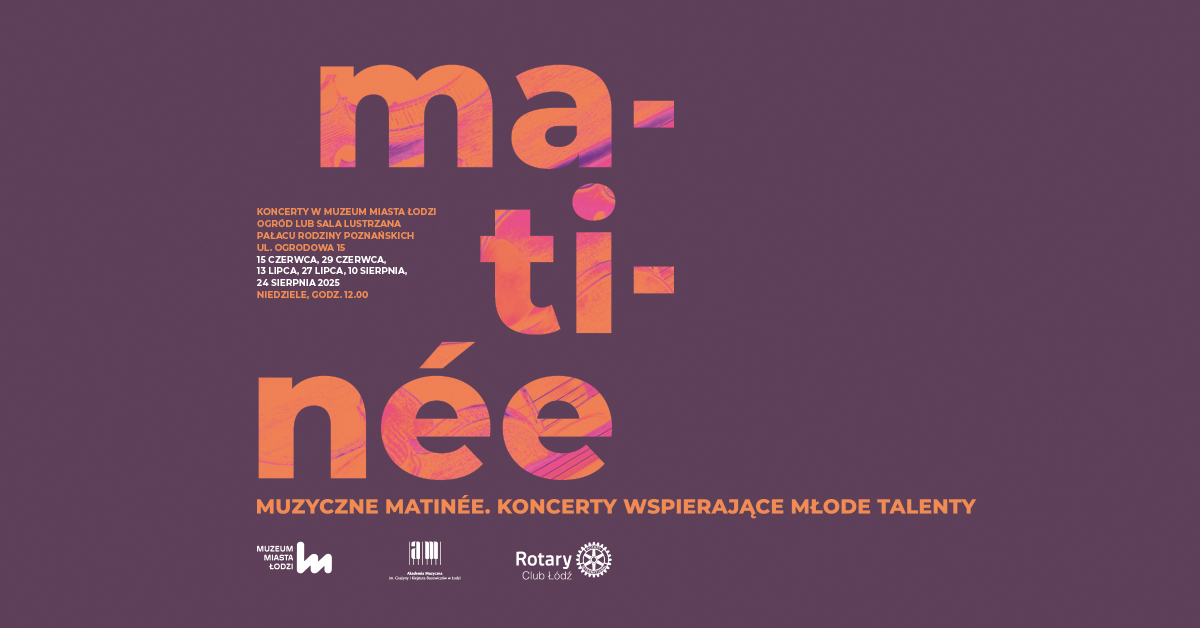 MUZYCZNE MATINÉE
MUZYCZNE MATINÉE
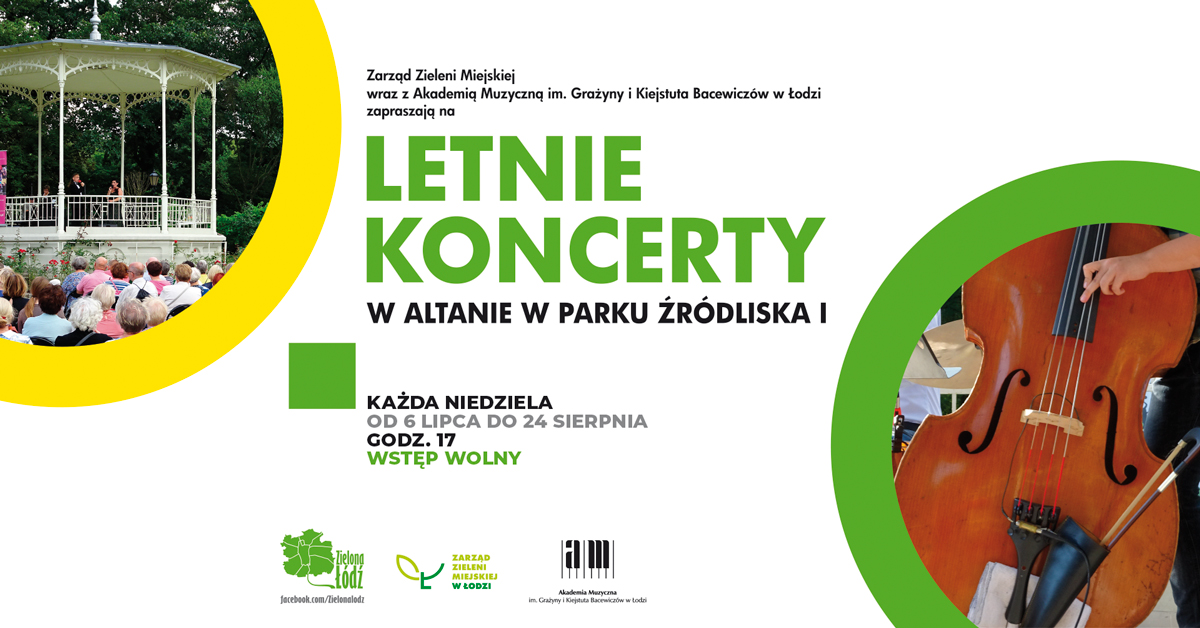 LETNIE KONCERTY W ALTANIE
LETNIE KONCERTY W ALTANIE
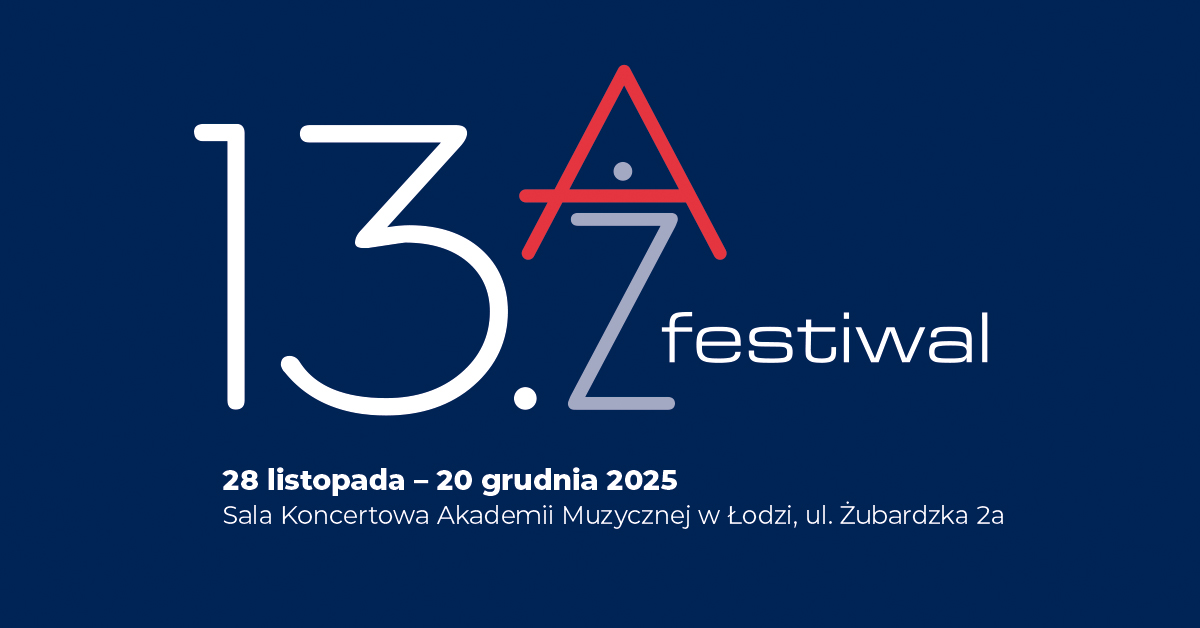 13. AŻ Festiwal
13. AŻ Festiwal









